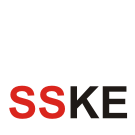From SSKE
(Created page with "<p style="text-align: justify">'''Abstract'''</p><p style="text-align: justify">In lots of countries, service economy has become the dominant economy. Modern services industries ...") |
|||
| Line 1: | Line 1: | ||
| − | <p style="text-align: justify">'''Abstract'''</p><p style="text-align: justify">In lots of countries, service economy has become the dominant economy. Modern services industries require talents skillful at multidiscipline subjects including IT services, business models, management skills, psychology, etc. There is the rise of services science, service-oriented computing, and services computing. The multidiscipline features bring newchallenges for services science. In this paper, we go beyond the traditional view of services and propose a threelayer framework for services science and services innovation. The framework covers service needs, service competencies, and service resources.We believe that these are the common building blocks and foundations for modern services industries. We use Amazon as an example to show the relevant of the framework for analyzing patterns of services innovation. We also use this framework to derive a set of service curricula for training talents for modern services.</p><p style="text-align: justify">[http://www.springerlink.com/content/y118l16p31666206/fulltext.pdf ''Download'']</p><p style="text-align: justify"> | + | <p style="text-align: justify">'''Abstract'''</p><p style="text-align: justify">In lots of countries, service economy has become the dominant economy. Modern services industries require talents skillful at multidiscipline subjects including IT services, business models, management skills, psychology, etc. There is the rise of services science, service-oriented computing, and services computing. The multidiscipline features bring newchallenges for services science. In this paper, we go beyond the traditional view of services and propose a threelayer framework for services science and services innovation. The framework covers service needs, service competencies, and service resources.We believe that these are the common building blocks and foundations for modern services industries. We use Amazon as an example to show the relevant of the framework for analyzing patterns of services innovation. We also use this framework to derive a set of service curricula for training talents for modern services.</p><p style="text-align: justify">[http://www.springerlink.com/content/y118l16p31666206/fulltext.pdf ''Download'']</p><p style="text-align: justify"></p><p style="text-align: justify">[[SSKE Knowledge/isPublishedIn::Service Oriented Computing and Applications| ]][[SSKE Knowledge/hasAuthor::Cai, Hong | ]][[SSKE Knowledge/hasAuthor::Chung, Jen-Yao | ]][[SSKE Knowledge/hasAuthor::Su, Hui | ]][[SSKE Knowledge/hasPublicationDate::2008| ]][[SSKE Knowledge/hasKeyword::Service Innovation Characteristics| ]]</p><p style="text-align: justify"></p> |
| + | [[Category:SSKE Knowledge/Article|SSKE_Knowledge/Article]]<br/>[[Category:SSKE Knowledge/Services Innovation|SSKE_Knowledge/Services_Innovation]] | ||
Latest revision as of 17:35, 17 May 2012
Abstract
In lots of countries, service economy has become the dominant economy. Modern services industries require talents skillful at multidiscipline subjects including IT services, business models, management skills, psychology, etc. There is the rise of services science, service-oriented computing, and services computing. The multidiscipline features bring newchallenges for services science. In this paper, we go beyond the traditional view of services and propose a threelayer framework for services science and services innovation. The framework covers service needs, service competencies, and service resources.We believe that these are the common building blocks and foundations for modern services industries. We use Amazon as an example to show the relevant of the framework for analyzing patterns of services innovation. We also use this framework to derive a set of service curricula for training talents for modern services.



